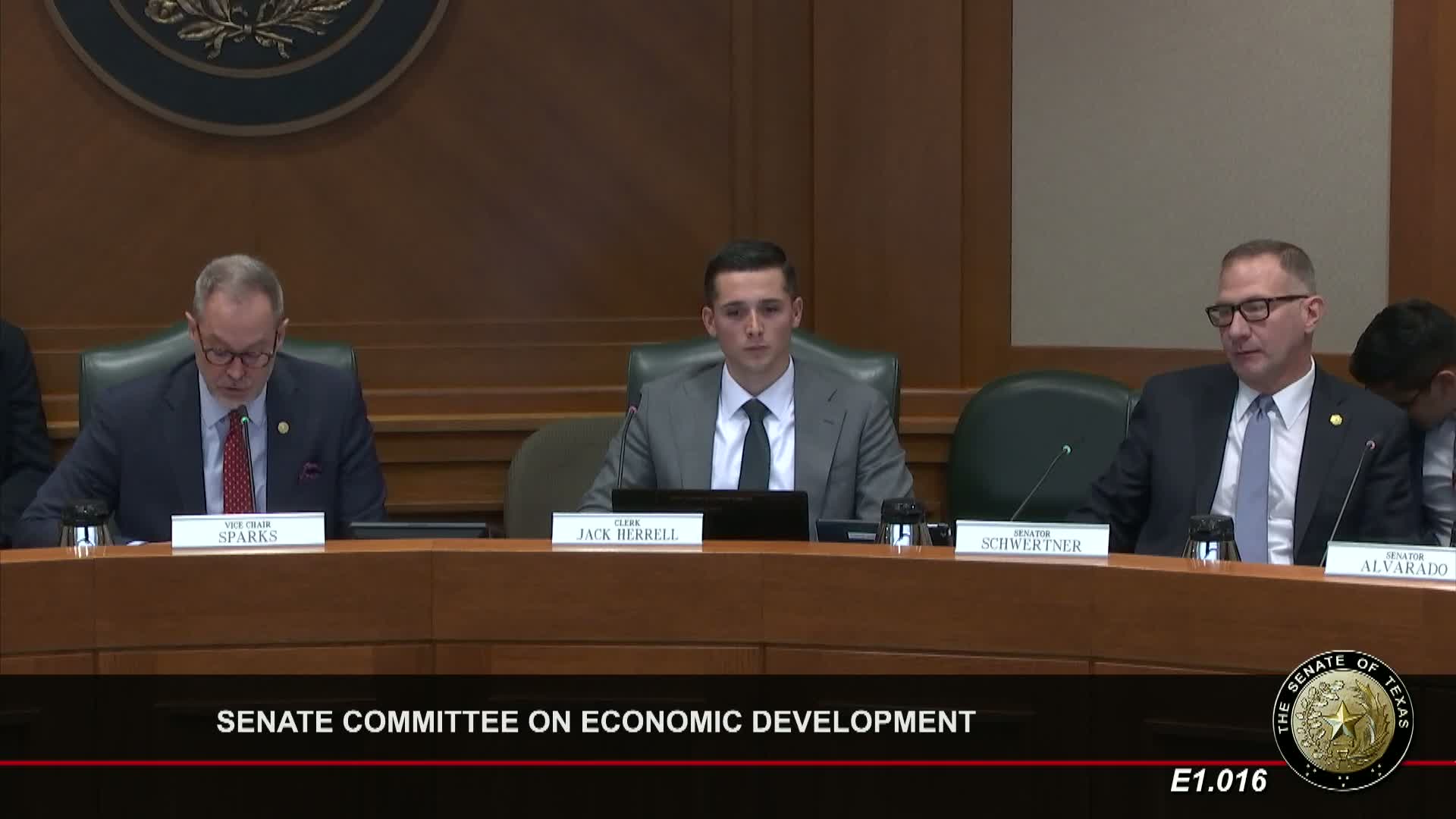Article not found
This article is no longer available. But don't worry—we've gathered other articles that discuss the same topic.
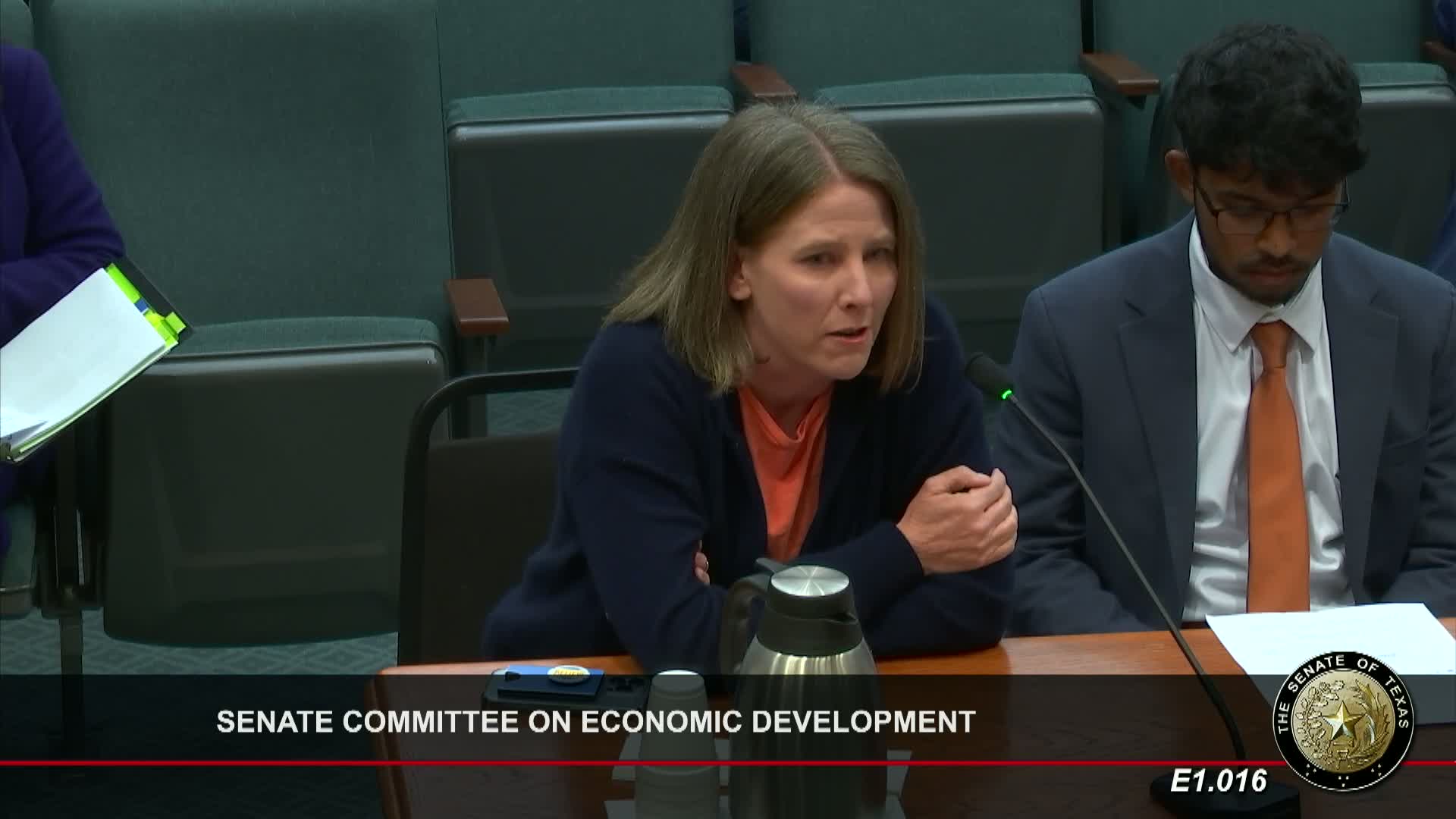
Committee hears primer on Event Trust Funds, considers adding NRA and Arlington Grand Prix to reimbursement program
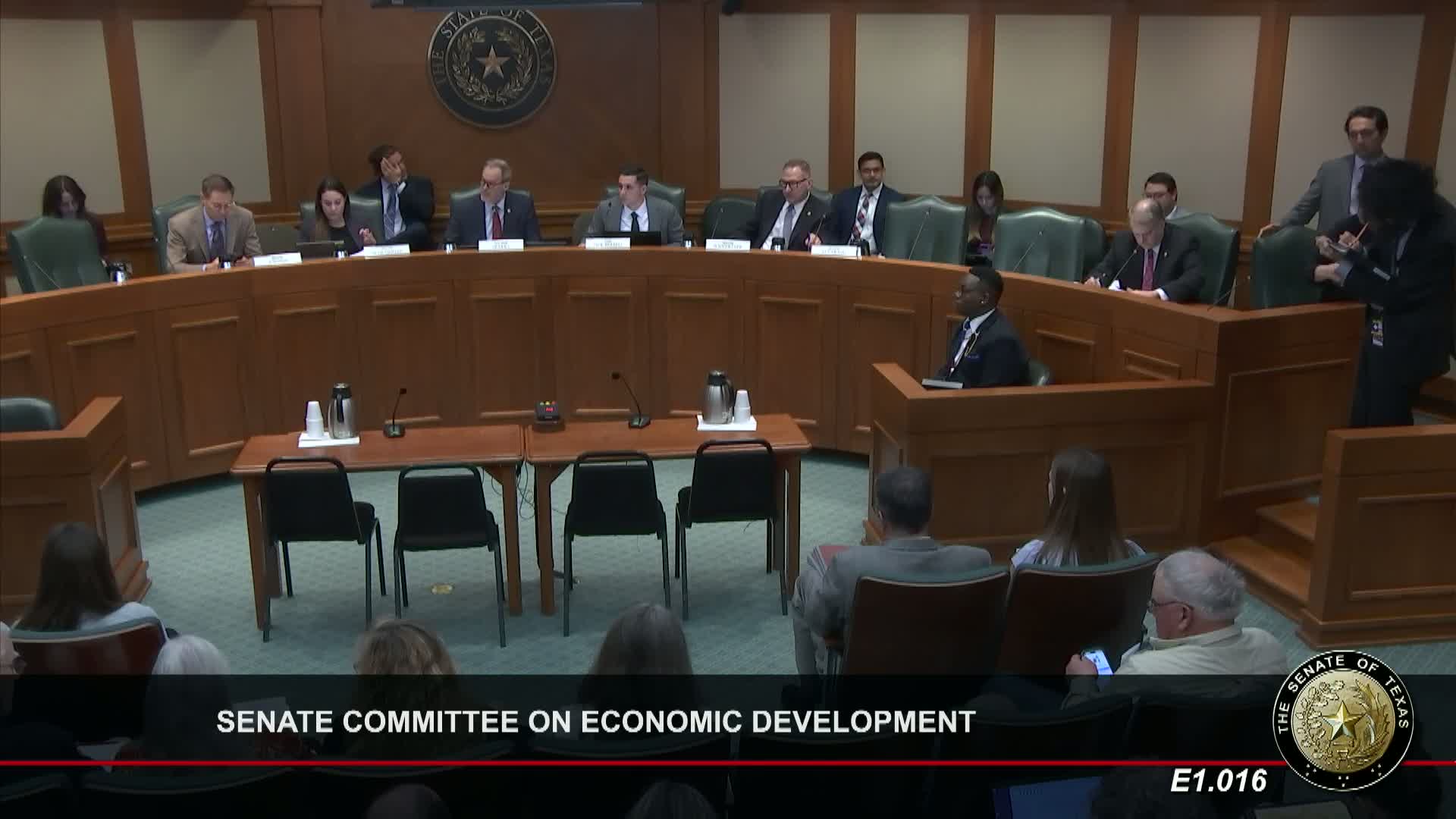
Committee advances several local hotel-tax bills and a cleanup for Alpine’s hotel-tax spending rule, testimony generally supportive
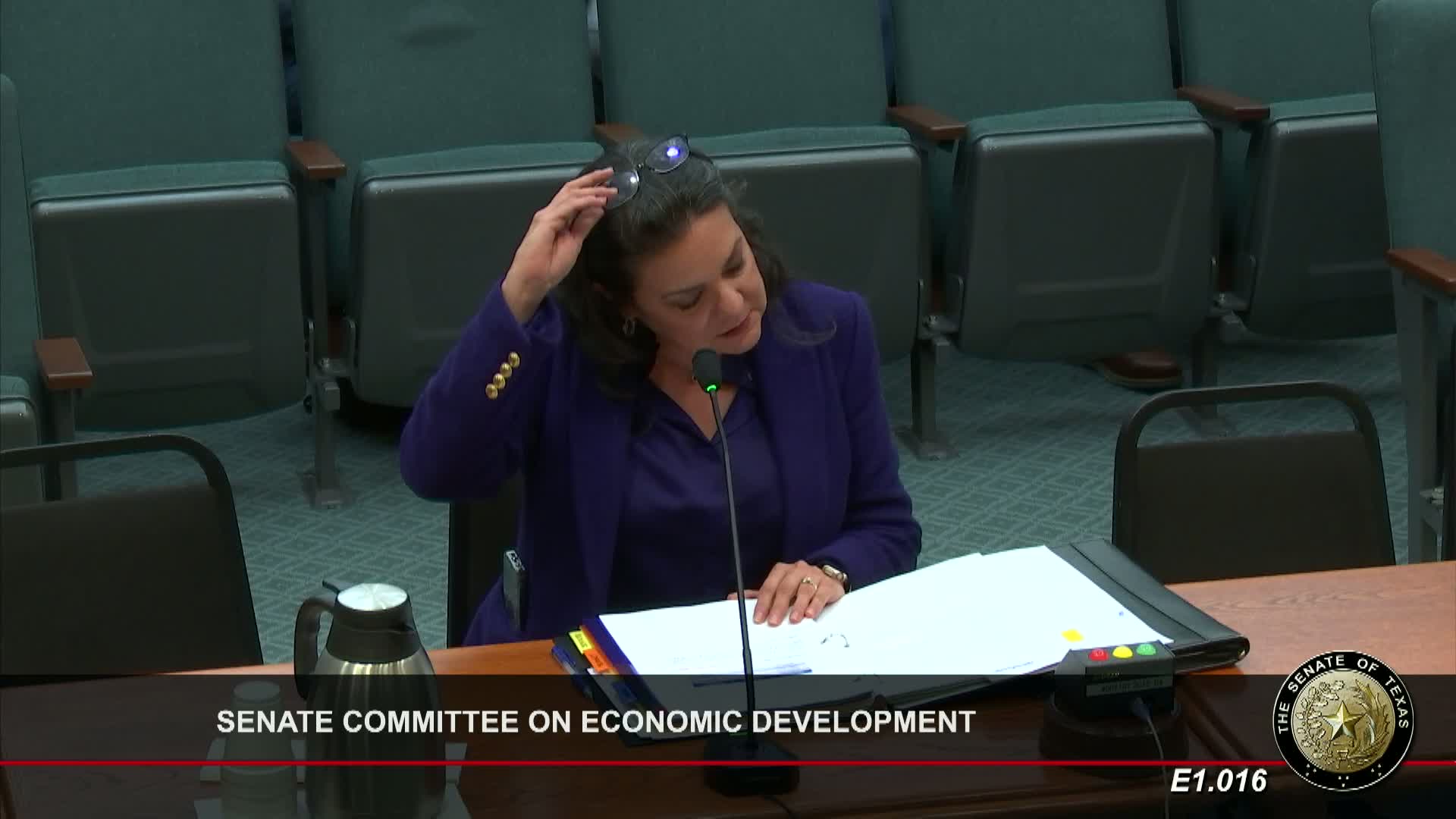
Committee considers technical fix to JEDI program to help dispatchable generators qualify for school-district abatements
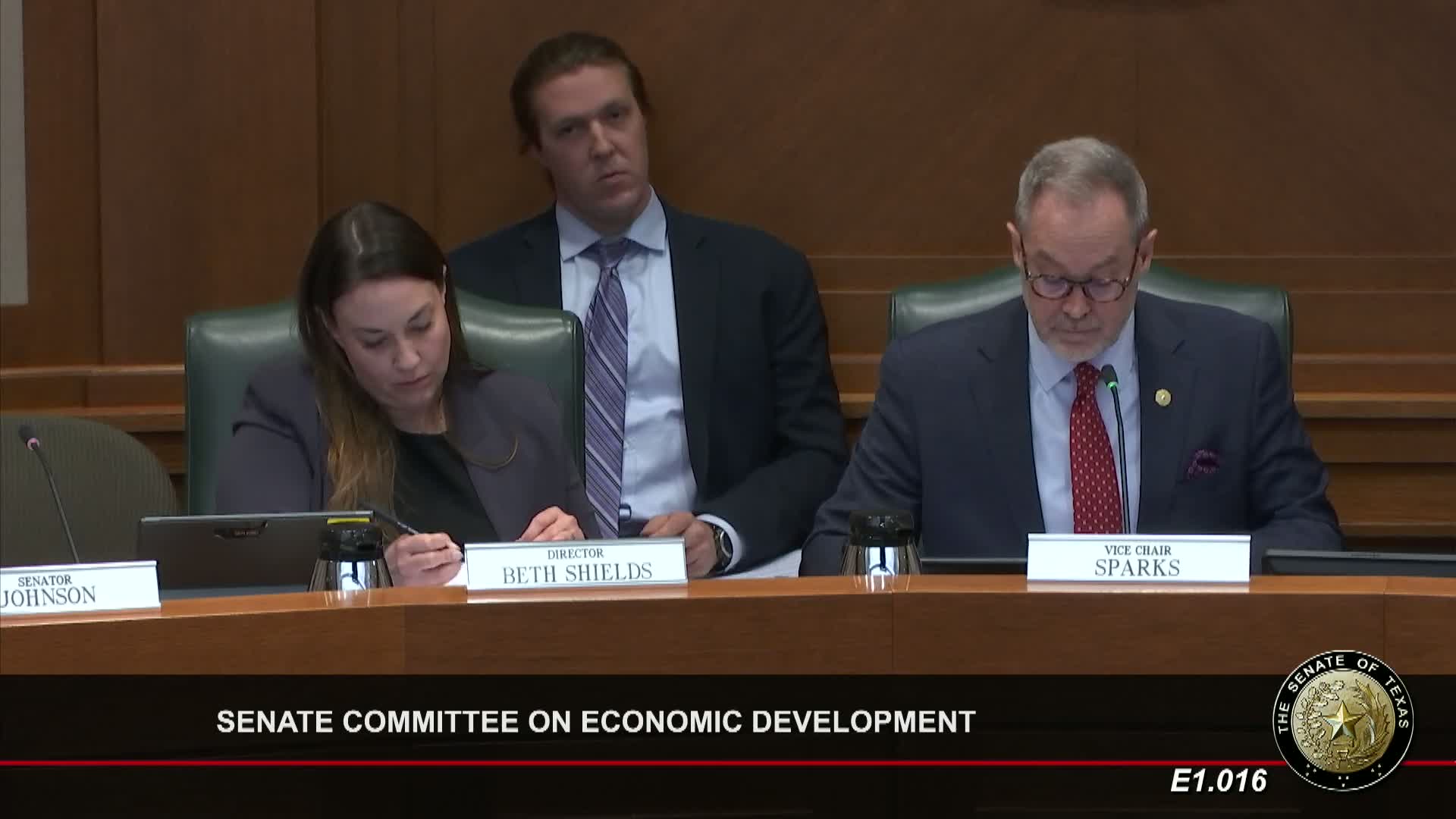
Senate committee hears broad testimony on bill to bar county tax abatements for wind and solar
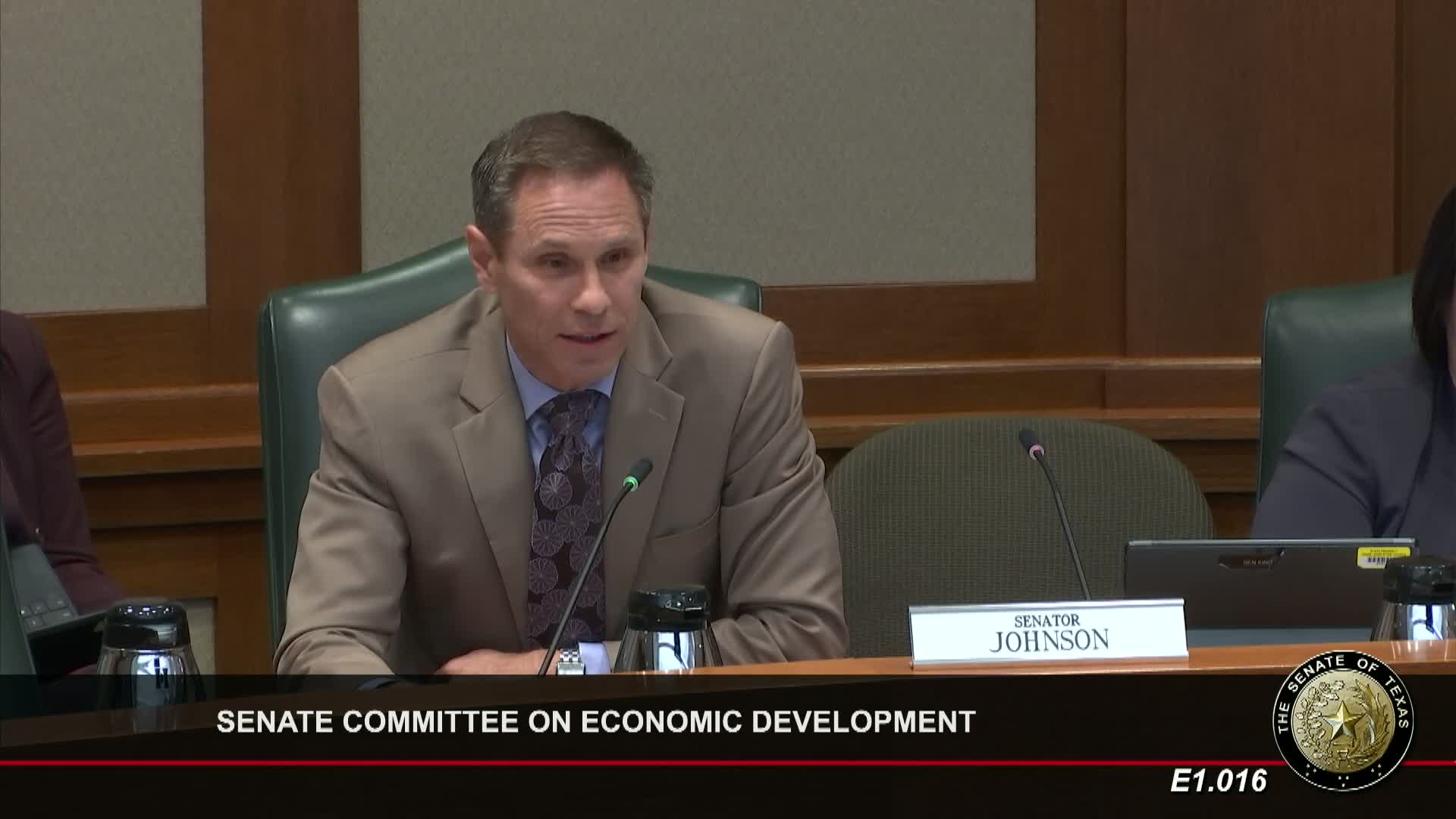
Panel reviews substitute to increase transparency and planning for opportunity youth programs
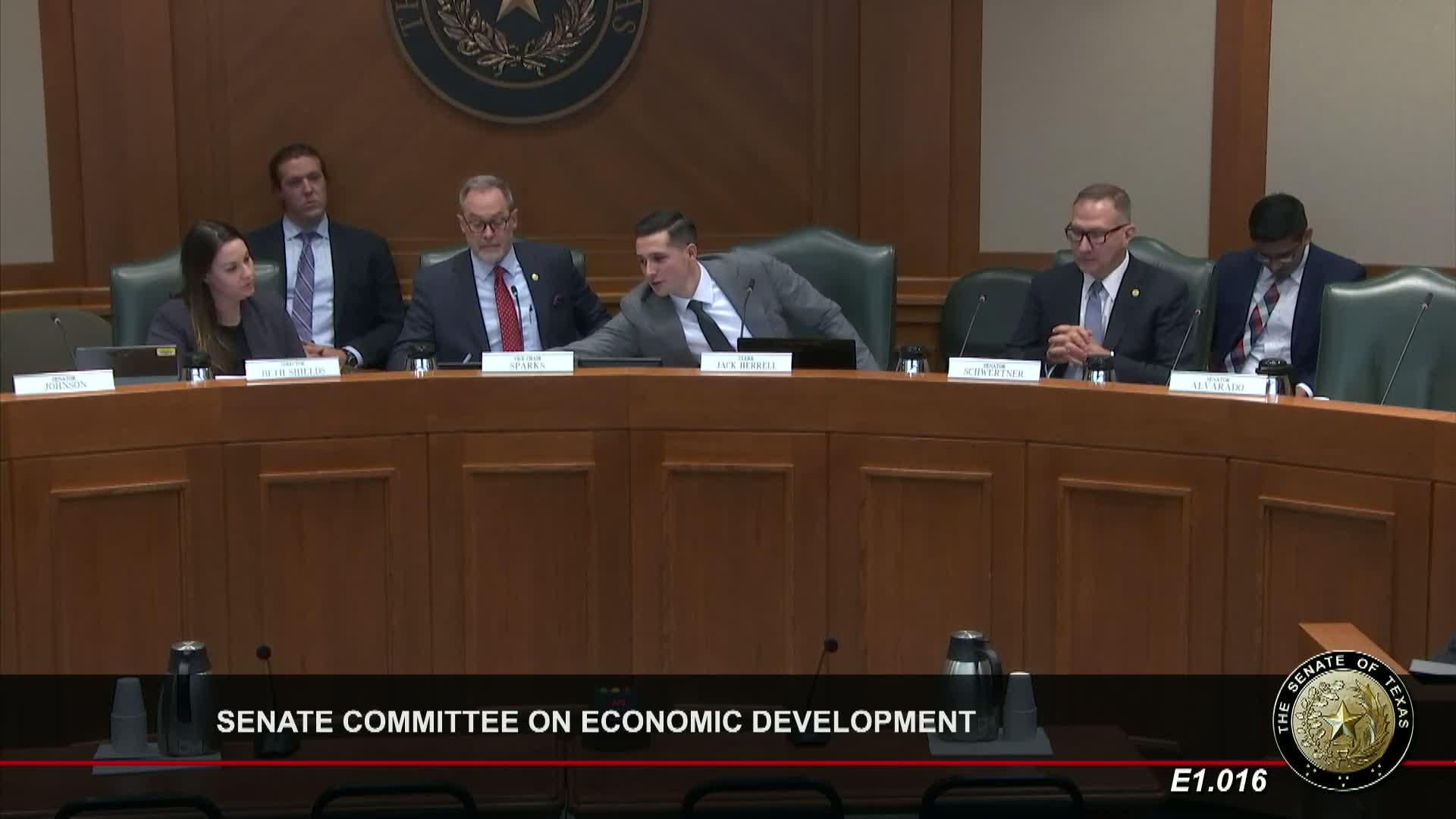
Panel hears brief on Senate Bill 15-34 to study health-physics education and workforce needs
